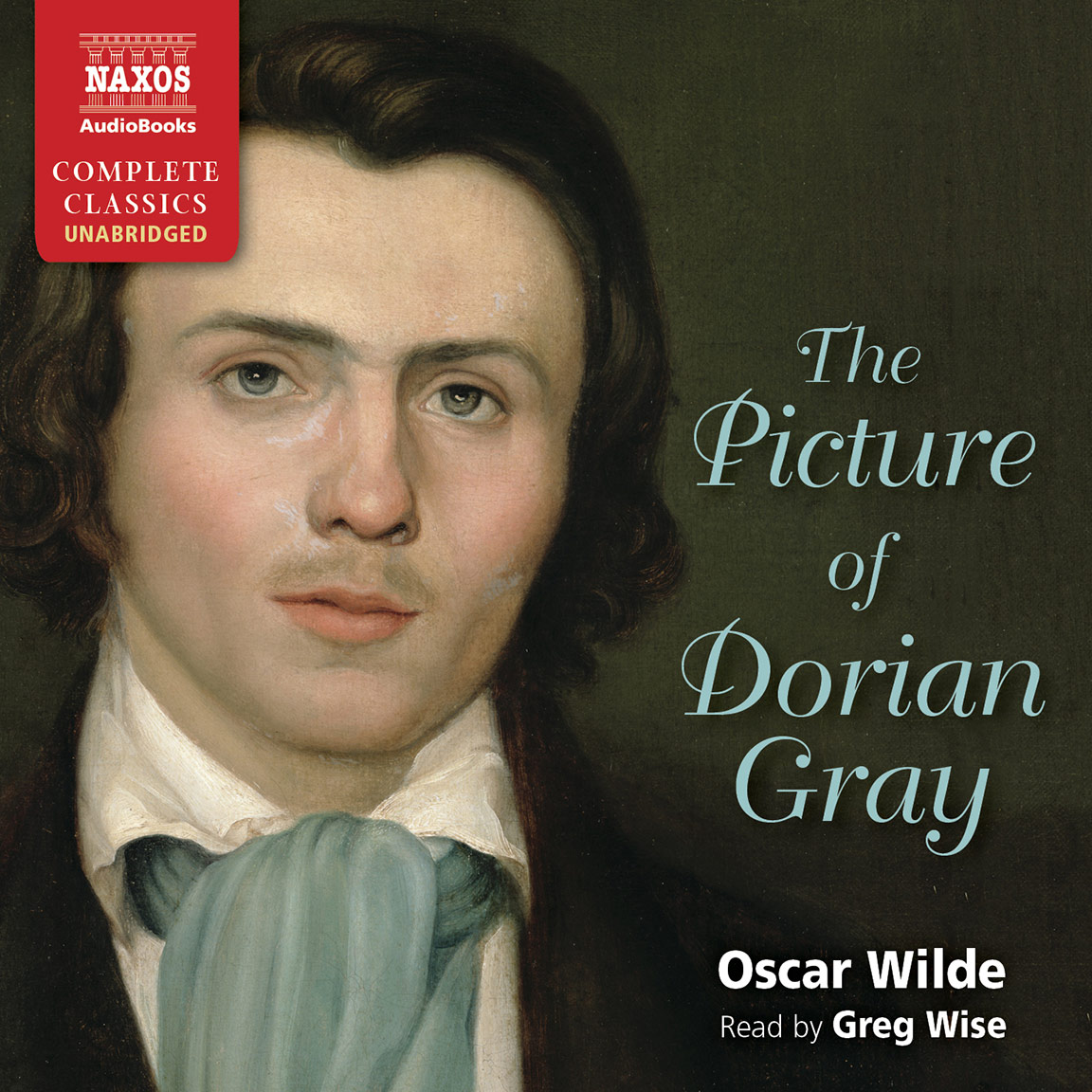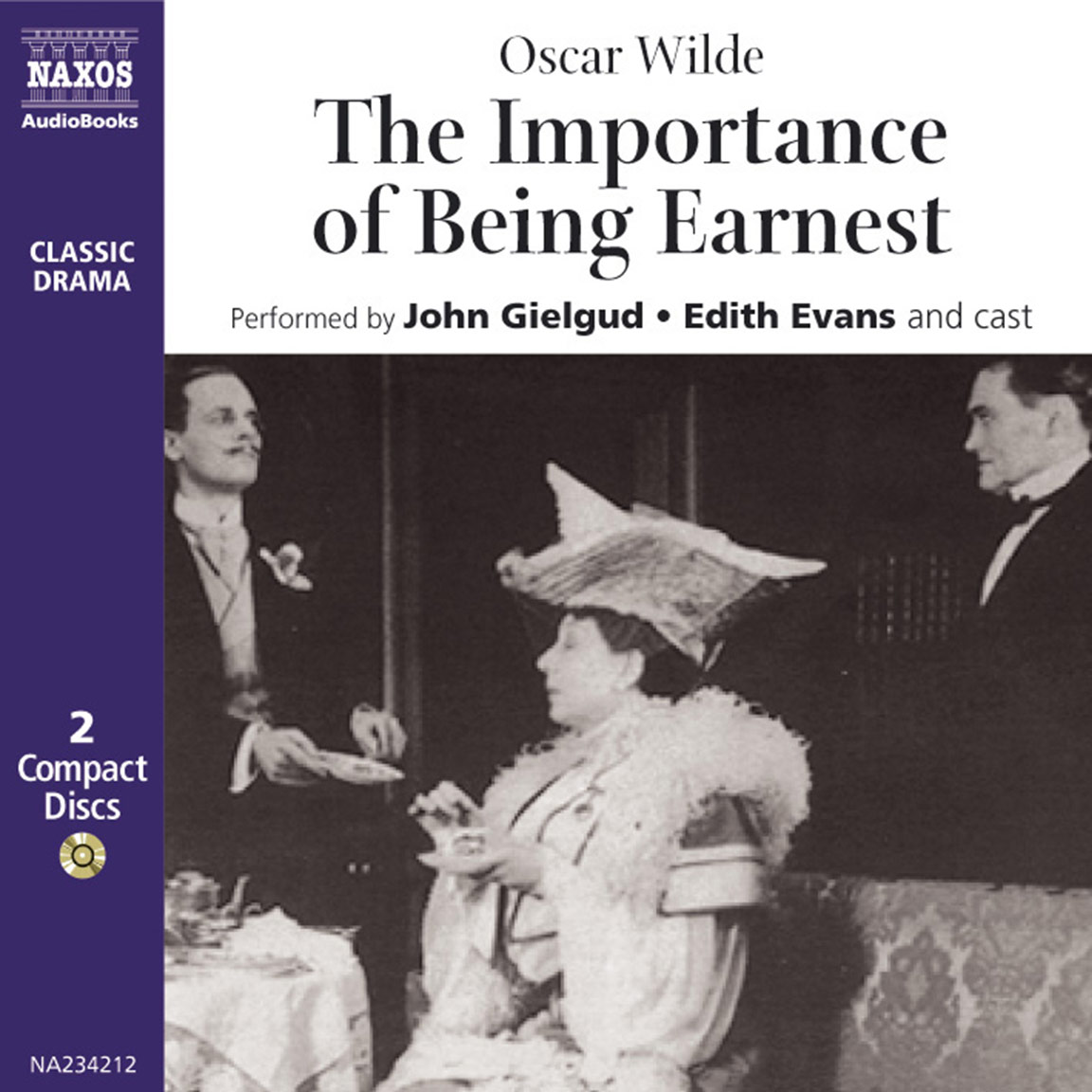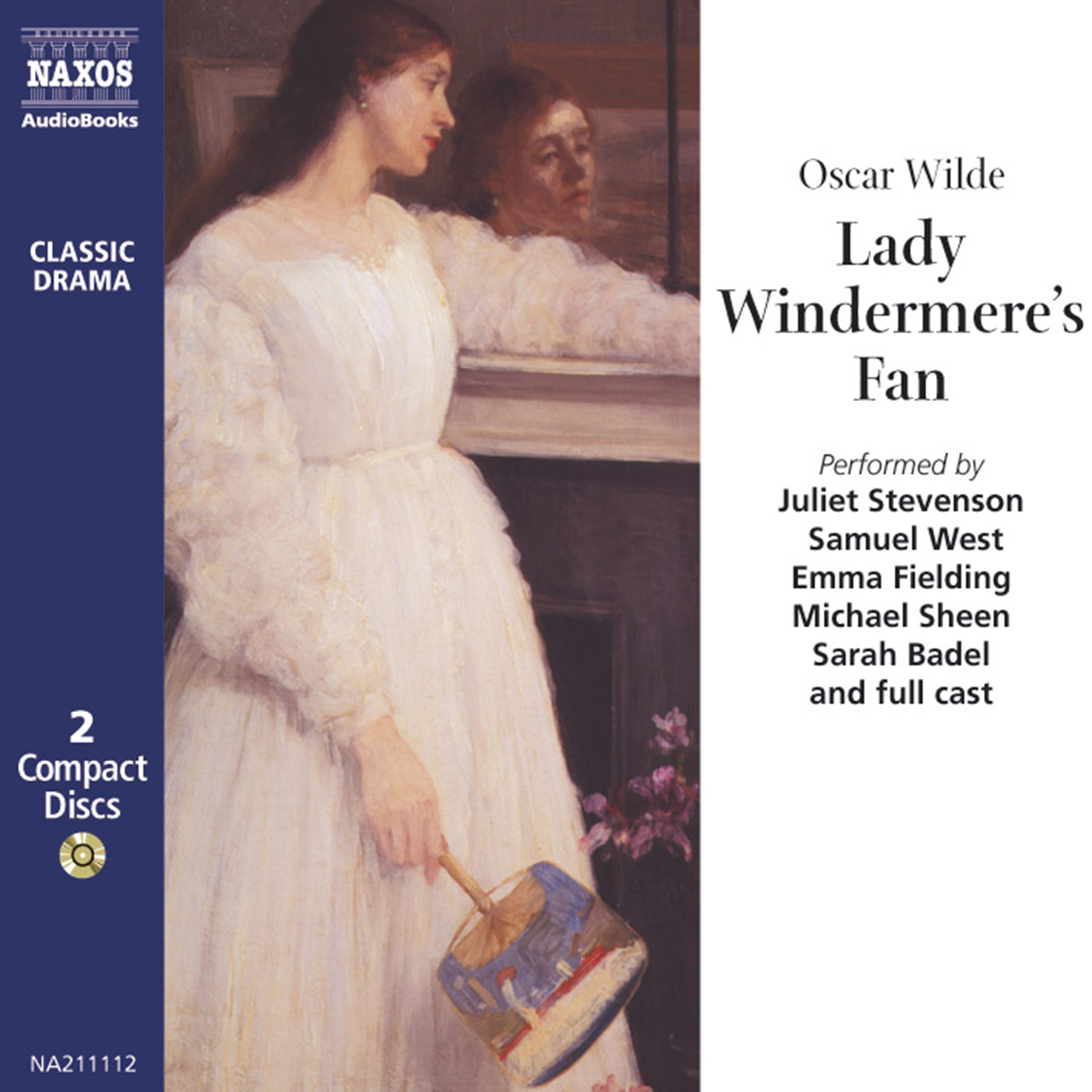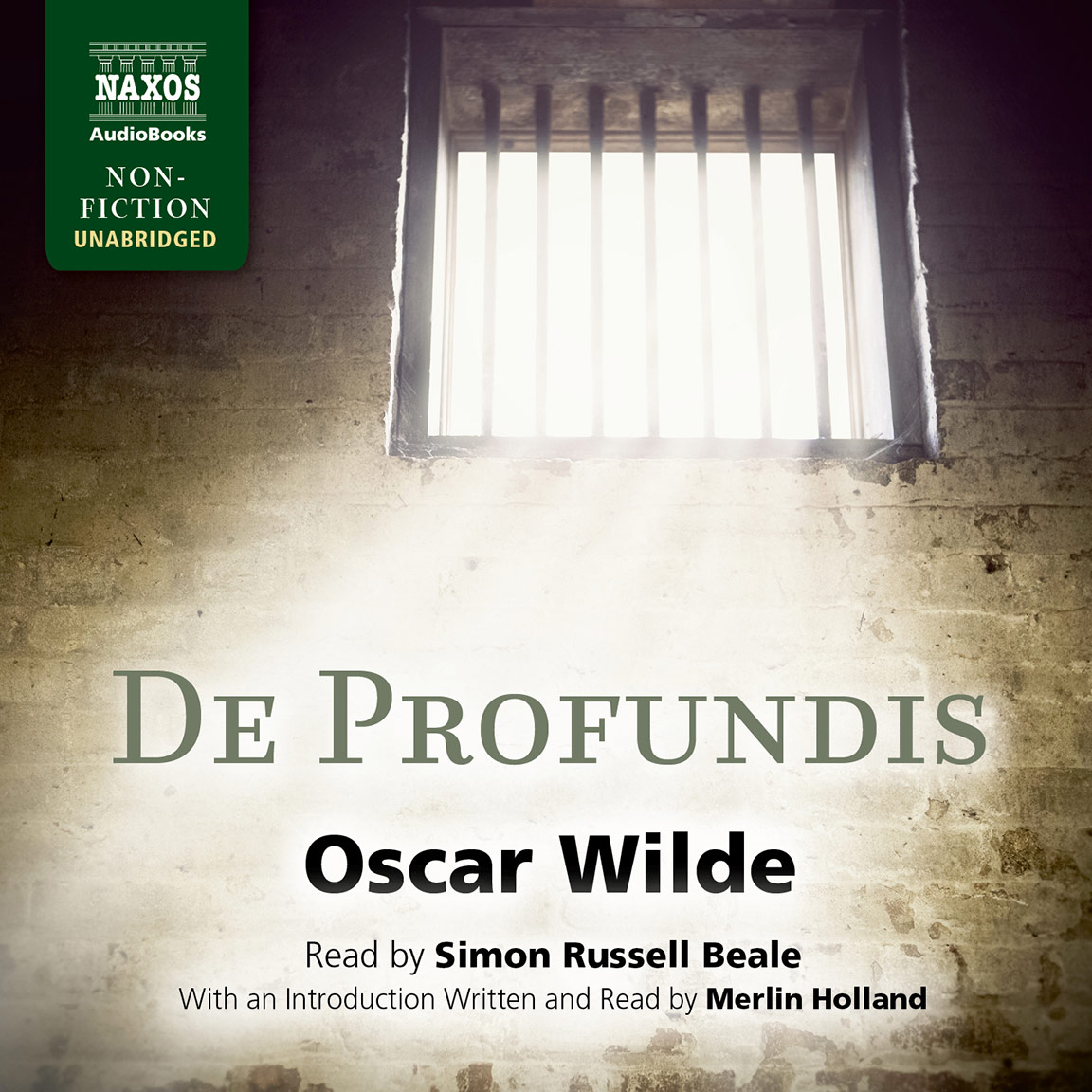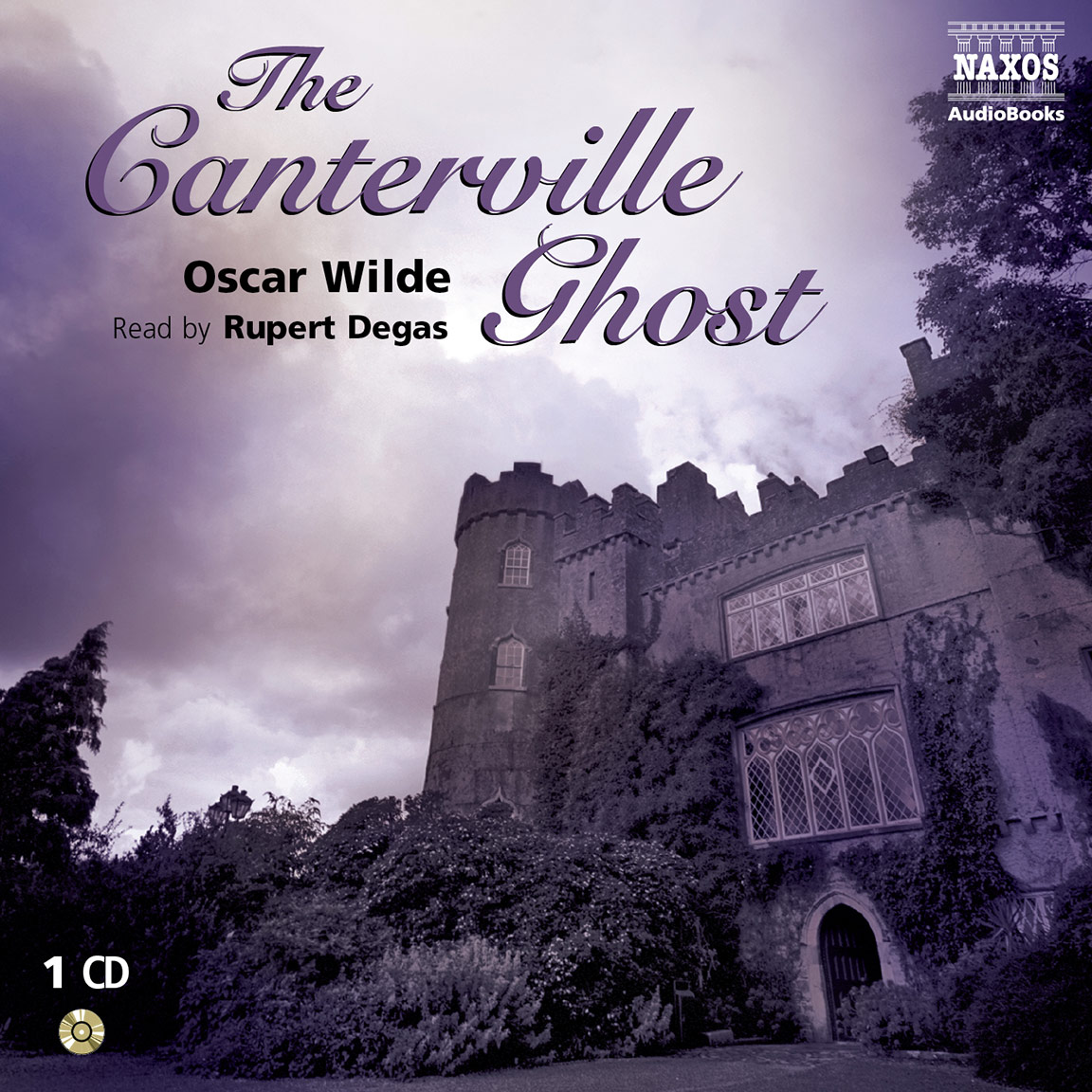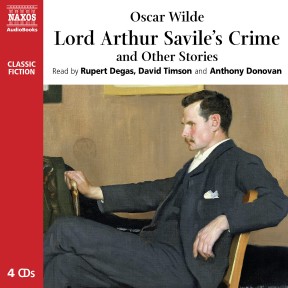
Audio Sample
Oscar Wilde
Lord Arthur Savile’s Crime and Other Stories
Read by Rupert Degas, David Timson & Anthony Donovan
unabridged
A palmist’s prediction leads to murder; an enigmatic woman’s lifestyle is a mystery to be solved; a ghost tries to frighten the new tenants of his home; a man has discovered the dedicatee of Shakespeare’s Sonnets; a millionaire wants to be painted as a pauper. Lord Arthur Savile’s Crime and Other Stories is a collection of fascinating short stories which are subversive as well as entertaining. Also included in this audiobook is The Birthday of the Infanta from A House of Pomegranates. An ugly dwarf loves a beautiful princess, but how will his feelings fare in a cruel society?
-
4 CDs
Running Time: 4 h 59 m
More product details
ISBN: 978-962-634-883-3 Digital ISBN: 978-962-954-860-5 Cat. no.: NA488312 Download size: 73 MB BISAC: FIC004000 Released: April 2010 -
Listen to this title at Audible.com↗Buy on CD at Downpour.com↗Listen to this title at the Naxos Spoken Word Library↗
Due to copyright, this title is not currently available in your region.
You May Also Enjoy
Included in this title
- Lord Arthur Savile’s Crime
- The Canterville Ghost
- The Portrait of Mr W.H.
- The Model Millionaire
- The Sphinx Without a Secret
- The Birthday of the Infanta
Reviews
A well-narrated collection features five pieces of short fiction originally published in 1891, to which has been added Wilde’s mawkish fairy tale The Birthday of the Infanta. The anthology includes Wilde’s best-known story, The Canterville Ghost, a satiric and ultimately touching account of a brash American family frustrating a British ghost, and the enigmatic Portrait of Mr. W.H., in which research into the identity of the dedicatee of Shakespeare’s sonnets leads to monomania and suicide. All the selections drip with irony, paradox, and iconoclasm while showing off the author’s celebrated cleverness and wit. Narrators Rupert Degas, David Timson and Anthony Donovan well understand and communicate these qualities. In addition, they mercifully tone down the instances of excessive sentiment that could otherwise tumble them into bathos.
Y.R., AudioFile
Booklet Notes
Oscar Wilde was a multi-faceted writer, one who could compose poems, essays, short fiction, novels and plays with equal skill. He turned to journalism in the mid-1880s to support his young family, but published his first collection of short stories, The Happy Prince and Other Tales, in 1888. It was received fairly well, despite Wilde’s difficulty in placing it with a publisher. A reader at Macmillan had described the stories as ‘pretty’ but lacking ‘any striking imaginative brilliance’. The collection was in the end published by a minor and less reputable firm.
Wilde – financially insecure – had previously built up his reputation and image by making himself known to the rich and powerful in London Society, becoming a ‘media personality’. After much time and effort, however, he began to be taken seriously as a writer, and in 1891 he achieved literary success when four of his books (all collections of revised, earlier material) were published in the same year. These included Lord Arthur Savile’s Crime and Other Stories (the title story of which had first been published in 1887) and A House of Pomegranates. Wilde nonetheless would become better known as a dramatist, and in 1892, with the first production of Lady Windermere’s Fan, he achieved true fame.
Wilde’s works
of fiction are
not merely
trifling stories
Drama was a natural medium through which Wilde could express his ideas and opinions due to its direct and immediate form. He enjoyed getting reactions from the public – and what better way than through theatre? Audiences responded well to his distinctive and parodic style, which contained echoes of 17th- and 18th-century English comedy. His unique voice, present in all his plays, only increased his popularity – there was nothing else like it.
However, as befalls many celebrities today, Wilde’s success came to a sudden and shocking end following scandal. The Importance of Being Earnest was halted during its run as a result of Wilde’s trials and imprisonment on charges of homosexual conduct. With his fame having been transformed into notoriety, Wilde died in 1900, poor and secluded.
It is a sad end considering how highly Wilde is regarded today. The Macmillan reader’s view is typical of the reception given to Wilde’s short fiction work during his lifetime, and yet these works are now considered some of the most popular of late 19th-century fiction. There is much more to them stylistically and psychologically than Wilde was given credit for. Within this collection of stories he experiments with various genres and forms, as well as the use of parody, paradox and melodrama. These devices can amuse or shock, depending on the manner of their use and the response Wilde sought. And time and again he revisits themes such as art versus life, innocence versus sin, truth versus lies and love versus desire. Raising these universal questions with regard to life, society and morality makes these stories widely accessible and appealing, while adding to them layers and depth.
The title story of Lord Arthur Savile’s Crime and Other Stories parodies detective and sensation fiction. Lord Arthur is told by a palmist that he will commit a murder. After his initial shock, Lord Arthur decides that he will fulfil his destiny -– but before he is due to be married. Humorously, he fails in various attempts, and the conclusion is rather ironic. The Sphinx without a Secret concerns the enemy of all relationships: mistrust. The main character discovers that the object of his desire visits a room regularly, and naturally assumes that she is having an affair. But things are not as they seem, and the story comes to a melancholy end. The Canterville Ghost is more light-hearted. In several comic incidents, a ghost tries (but fails) to frighten the new tenants of Canterville Chase. The tale becomes poignant, however, as the ghost finds himself without a reason for being.
The Portrait of Mr W.H. is an intriguing tale in which a man called Cyril Graham believes that he has discovered the true identity of the individual to whom Shakespeare’s Sonnets were dedicated. His friend Erskine gets drawn into this convincing theory, especially when a third man to whom he has told the story finds more evidence to back it up. It is an obsessive passion, to the detriment of both Cyril and Erskine. Beneath this story there lie coded hints to Wilde’s representation of male homosexual desire.
The main theme in The Portrait of Mr W.H. is deception and forgery. The ability to sustain falsehoods is also represented in The Sphinx without a Secret, in which a woman only appears to live a double-life, as well as in The Model Millionaire, which concerns a millionaire wishing to be painted as a pauper. All three stories are reminders of Wilde’s own need to lead a double-life.
The final story, The Birthday of the Infanta, comes from A House of Pomegranates. Including it in this audiobook is appropriate, however, since its contrasting of an ugly dwarf with a beautiful princess illustrates another of Wilde’s common themes – of aesthetics, of the nature of beauty and of beauty’s relationship to life and its morals. The dwarf’s love for the Infanta can never be realised within the society in which he finds himself; Wilde shows how this would have been seen as quite ridiculous. The court’s ignorance that the dwarf is also a human possessing feelings ominously foretells Wilde’s ultimate rejection by society for his (then) unacceptable inclinations.
Wilde’s works of fiction are not merely trifling stories, comedies or simple fairy tales. They are enticing and enigmatic, with a subversive edge. As well has having the distinctive voice of his plays, the stories reveal the development of Wilde’s literary style. Further, they give insight into Wilde’s personality, his opinions about society, and his handling of his feelings. His fiction works may not have had the intended impact at the time, but today their importance is understood and they are as important a part of Wilde’s output as his inspiring novels and famous plays.
Notes by Chloé Harmsworth
